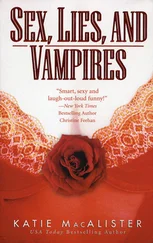This question is asked over twenty times, and it’s never answered. They’re on a boat, they look at the horizon, and they say, “Where are we?” And if someone wanted to use Pam as a metaphor for the decline of American morality and the vapidity of modern relationships, they could point out that phrase as an illuminating example of a lost generation. “Where are we, indeed,” such a critic might write in the last paragraph of an essay. But that kind of snarkiness is more negative than necessary, and it misses the point. We don’t need Pam to know where she is; she helps us understand where we are.
(metaphorical fruit interlude)
“You’re missing the point,” she said. “What you’re saying makes sense in theory, but not in practice. You’re trying to compare apples and oranges.”
“Why do you keep saying that?” he asked in response. “Apples and oranges aren’t that different, really. I mean, they’re both fruit. Their weight is extremely similar. They both contain acidic elements. They’re both roughly spherical. They serve the same social purpose. With the possible exception of a tangerine, I can’t think of anything more similar to an orange than an apple. If I was having lunch with a man who was eating an apple and—while I was looking away—he replaced that apple with an orange, I doubt I’d even notice. So how is this a metaphor for difference? I could understand if you said, ‘That’s like comparing apples and uranium,’ or ‘That’s like comparing apples with baby wolverines,’ or ‘That’s like comparing apples with the early work of Raymond Carver,’ or ‘That’s like comparing apples with hermaphroditic ground sloths.’ Those would all be valid examples of profound disparity. But not apples and oranges. In every meaningful way, they’re virtually identical.”
“You’re missing the point,” she said again, this time for different reasons.
7 George Will vs. Nick Hornby 0:86
Like many U.S. citizens, I spend much of my free time thinking about the future of sports and the future of our children. This is because I care deeply about sports.
In the spirit of both, I’ve spent the last fifteen years of my life railing against the game of soccer, an exercise that has been lauded as “the sport of the future” since 1977. Thankfully, that future dystopia has never come. But people continue to tell me that soccer will soon become part of the fabric of this country, and that soccer will eventually be as popular as football, basketball, karate, pinball, smoking, glue sniffing, menstruation, animal cruelty, photocopying, and everything else that fuels the eroticized, hyperkinetic zeitgeist of Americana. After the U.S. placed eighth in the 2002 World Cup tournament, team forward Clint Mathis said, “If we can turn one more person who wasn’t a soccer fan into a soccer fan, we’ve accomplished something.” Apparently, that’s all that matters to these idiots. They won’t be satisfied until we’re all systematically brainwashed into thinking soccer is cool and that placing eighth [35] 1. And losing to Poland!
is somehow noble. However, I know this will never happen. Not really. Dumb bunnies like Clint Mathis will be wrong forever, and that might be the only thing saving us from ourselves.
My personal war against the so-called “soccer menace” probably reached its peak in 1993, when I was nearly fired from a college newspaper for suggesting that soccer was the reason thousands of Brazilians are annually killed at Quiet Riot concerts in Rio de Janeiro, a statement that is—admittedly—only half true. A few weeks after the publication of said piece, a petition to have me removed as the newspaper’s sports editor was circulated by a ridiculously vocal campus organization called the Hispanic American Council, prompting an “academic hearing” where I was accused (with absolute seriousness) of libeling Pelé. If memory serves, I think my criticism of soccer and Quiet Riot was somehow taken as latently racist, although—admittedly—I’m not completely positive, as I was intoxicated for most of the monthlong episode. But the bottom line is that I am still willing to die a painful public death, assuming my execution destroys the game of soccer (or—at the very least—convinces people to shut up about it).
According to the Soccer Industry Council of America, soccer is the No. 1 youth participation sport in the U.S. There are more than 3.6 million players under the age of nineteen registered to play, and that number has been expanding at over 8 percent a year since 1990. There’s also been a substantial increase in the number of kids who play past the age of twelve, a statistic that soccer proponents are especially thrilled about. “These are the players that will go on to be fans, referees, coaches, adult volunteers, and players in the future,” observed Virgil Lewis, chairman of the United States Youth Soccer Association.
Certainly, I can’t argue with Virgil’s math: I have no doubt that battalions of Gatorade-stained children are running around the green wastelands of suburbia, randomly kicking a black-and-white ball in the general direction of tuna netting. However, Lewis’s larger logic is profoundly flawed. There continues to be this blindly optimistic belief that all of the brats playing soccer in 2003 are going to be crazed MSBL fans in 2023, just as it was assumed that eleven-year-old soccer players in 1983 would be watching Bob Costas provide play-by-play for indoor soccer games right now. That will never happen. We will never care about soccer in this country. And it’s not just because soccer is inherently un-American, which is what most soccer haters (Frank Deford, Jim Rome, et al.) tend to insinuate. It’s mostly because soccer is inherently geared toward Outcast Culture.
On the surface, one might assume that would actually play to soccer’s advantage, as America has plenty of outcasts. Some American outcasts are very popular, such as OutKast. [36] 2. And also Jake Gyllenhaal.
But Outcast Culture does not meld with Intimidation Culture, and the latter aesthetic has always been a cornerstone of team sports. An outcast can be intimidating in an individual event—Mike Tyson and John McEnroe are proof—but they rarely thrive in the social environment of a team organism (e.g., Duane Thomas, Pete Maravich, Albert Belle, et al.). Unless you’re Barry Bonds, being an outcast is antithetical to the group concept. But soccer is the one sport that’s an exception to that reality: Soccer unconsciously rewards the outcast, which is why so many adults are fooled into thinking their kids love it. The truth is that most children don’t love soccer; they simply hate the alternatives more. For 60 percent of the adolescents in any fourth-grade classroom, sports are a humiliation waiting to happen. These are the kids who play baseball and strike out four times a game. These are the kids who are afraid to get fouled in basketball, because it only means they’re now required to shoot two free throws, which equates to two air balls. Basketball games actually stop to recognize their failure. And football is nothing more than an ironical death sentence; somehow, outcasts find themselves in a situation where the people normally penalized for teasing them are suddenly urged to annihilate them.
This is why soccer seems like such a respite from all that mortification; it’s the one aerobic activity where nothingness is expected. Even at the highest levels, every soccer match seems to end 1–0 or 2–1. [37] 3. My statistically obsessed compadre Jon Blixt once made a brilliant deduction about World Cup soccer: It must be a nightmare for gamblers. “I cannot comprehend how casinos could set the point spread for these games, as it appears the favored nation wins every single match—yet never by a margin of more than a single goal,” he wrote me while watching Italy defeat Bulgaria 2–1 in a 1994 World Cup semifinal, a contest that was immediately followed by Brazil’s 1–0 win over Sweden. “Perhaps they only bet the over-under, which must always be 2 ½.”
A normal eleven-year-old can play an entire season without placing toe to sphere and nobody would even notice, assuming he or she does a proper job of running about and avoiding major collisions. Soccer feels “fun” because it’s not terrifying—it’s the only sport where you can’t fuck up. An outcast can succeed simply by not failing, and public failure is every outcast’s deepest fear. For society’s prepubescent pariahs, soccer represents safety.
Читать дальше












